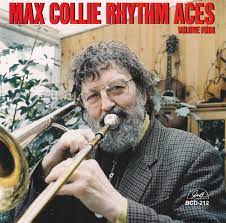
Daily Dose Of Jazz…
John Maxwell Collie was born on February 21, 1931 in Melbourne, Australia. In 1946 he first heard professional jazz listening to Graham Bell’s lunchtime concerts at The New Theatre Melbourne. By 17 he was playing with a local band and shortly after leading it.
When he received the invitation by cable to take the trombone chair in the Melbourne New Orleans Jazz Band that was on tour in Europe, Max accepted and in 1962 arrived in England. He toured Europe until the band went back to Australia a year later, however, he decided to stay and joined the London City Stompers, becoming leader after a year. In 1966 he formed Max Collie’s Rhythm Aces and that band, notwithstanding the collapse of the UK jazz scene flourished.
The group released their first record in 1971 and in 1975 they won the World Championship of Jazz in traditional jazz against fourteen competing North American jazz bands in Indianapolis, Indiana.
He would go on to tour Sweden, Denmark, Finland, Norway and Japan and create a theater show. This show, Max Collie’s New Orleans Mardi Gras, which included Ken Colyer and Cy Laurie, turned out to be the most successful jazz show in British jazz history. Trombonist Max Collie died on January 6, 2018, at the age of 86.
More Posts: bandleader,history,instrumental,jazz,music,trombone
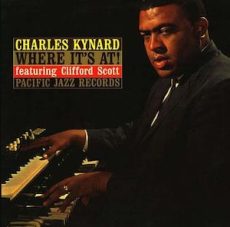
Daily Dose Of Jazz…
Charles Kynard was born in St. Louis, Missouri on February 20, 1933 and first played piano then switched to organ and led a trio in Kansas City. The trio included Tex Johnson on flute and saxophone, and Leroy Anderson on drums.
In 1963, he settled in Los Angeles, California and his band featured guitarists Cal Green and Ray Crawford, drummer Johnny Kirkwood. Between 1963 to 1973 Charles recorded ten albums as a leader, and ten albums as a sideman with Johnny Almond, Paul Jeffrey, Les McCann, Blue Mitchell, Howard Roberts, Clifford Scott, Sonny Stitt, and Tom Waits.
Organist Charles Kynard died on July 8, 1979.
More Posts: history,instrumental,jazz,music,organ
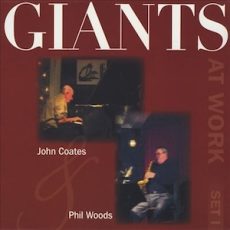
Daily Dose Of Jazz…
John Francis Coates Jr. was born February 17, 1938 in Trenton, New Jersey to a full-time performing musician and bandleader father, and his mother a dancer and actress. He attended Ewing High School and began his formal study in New York City at age eight with Urana Clarke at the Mannes College of Music on full scholarship. His earliest influences were credited to listening to Symphony Sid on his AM radio.
From age 11 to 14 he played clarinet with his father at the Trenton YMCA dance hall night, where he learned to improvise. His father began teaching him jazz piano at twelve and influenced by Jack Weig he joined the Trenton musicians union the same year. By 14 he was playing gigs two nights a week, as well as weekends and at sixteen he was gigging six nights a week during the summer at the Deer Head Inn where Savoy Records discovered him.
He recorded his debut Savoy album, Portrait, with bassist Wendell Marshall and drummer Kenny Clarke during his senior year of high school. He performed on the Steve Allen, Mike Douglas, and Merv Griffin tv shows in support of that album. From 1956 to 1958 he toured with Charlie Ventura, then while in college John played with Barry Miles, Eddie Gomez, Ron Carter, Woody Shaw, Harry Leahey, Al Cohn, Zoot Sims, Kai Winding, Urbie Green, and Pepper Adams.
Attending Rutgers University he graduated with a degree in romance languages in 1962. After graduating Coates returned to Deer Head where he again played six nights a week, four alone and two as bandleader. He took a position with Shawnee Press as an arranger and editor. He began performing at Henderson’s Club 50, where he had a six night per week gig and played with Coleman Hawkins, Clark Terry, Doc Severinsen, Phil Woods, Marvin Stamm and Bill Watrous among others.
Moving to Mountain Lake, New Jersey in 1966 and began working as an editor at Shawnee Press, arranged on his own time on a royalty basis, and playing at the Deer Head year round where he became an early inspiration for Keith Jarrett, who would listen and sit in occasionally. His arrangement for Amazing Grace has sold more than 750,000 copies and remains one of the publishing company’s best sellers.
John recorded nine albums for the record label Omnisound, toured briefly with bassist Paul Langosch, then began recording for Pacific St Records, including two albums with Phil Woods. In the 1990s, he became homeless and attempted suicide, then moved to Coney Island and began playing again around the year 2000.
Pianist, composer and arranger John C. Coates Jr., who occasionally played vibraphone and clarinet, died on November 22, 2017.
More Posts: arranger,composer,history,instrumental,jazz,music,piano,vibraphone
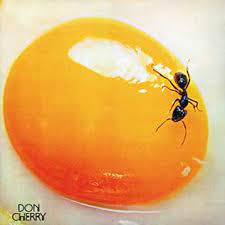
Daily Dose Of Jazz…
Okay Temiz was born on February 11, 1939 in Istanbul, Turkey and was influenced in his early years by his mother, Naciye, who was classically schooled in music.
Temiz started playing professionally in 1955 while studying at the Ankara Conservatory and at the Tophane Art Institute. After meeting Maffy Falay and Don Cherry, he settled in Sweden. With Cherry and bassist Johnny Dyani he toured US and Europe in 1971.
In 1972, he founded the band Xaba with Dyani and trumpeter Mongezi Feza. His drums are of his own invention, and are constructed using hand-beaten copper, in the style of Turkish debuka’s.
Fusion jazz percussionist and drummer Okay Temiz has recorded seventy-two albums and continues to perform and record.
More Posts: drums,history,instrumental,jazz,music,percussion
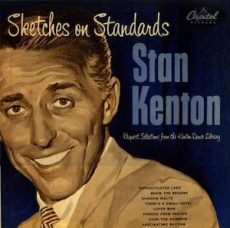
Daily Dose Of Jazz…
Reuben McFall was born on February 1, 1931 in Los Angeles, California to a musician father and grew up in the Belvedere neighborhood of East Los Angeles, long established as a Mexican-American enclave.
McFall attended Westlake College of Music in Hollywood, California, one of the first institutions in the county to offer a diploma in jazz. The school was founded in 1945 and ran until 1961.
As a sideman he performed with Freddie Slack, Vido Musso, Floyd Ray, Glen Henry, Lalo Guerrero. From 1946 to 1955 he recorded albums with Roy Porter and His Orchestra, Gerry Mulligan, Stan Kenton, Woody Herman, Shorty Rogers, Gerald Wilson and Teddi King.
Trumpeter, composer and jazz arranger Reuben McFall, who was also known as Ruben and Rubin and Ruban, is 93 years old.
More Posts: history,instrumental,jazz,music,trumpet


